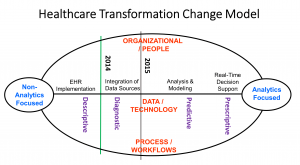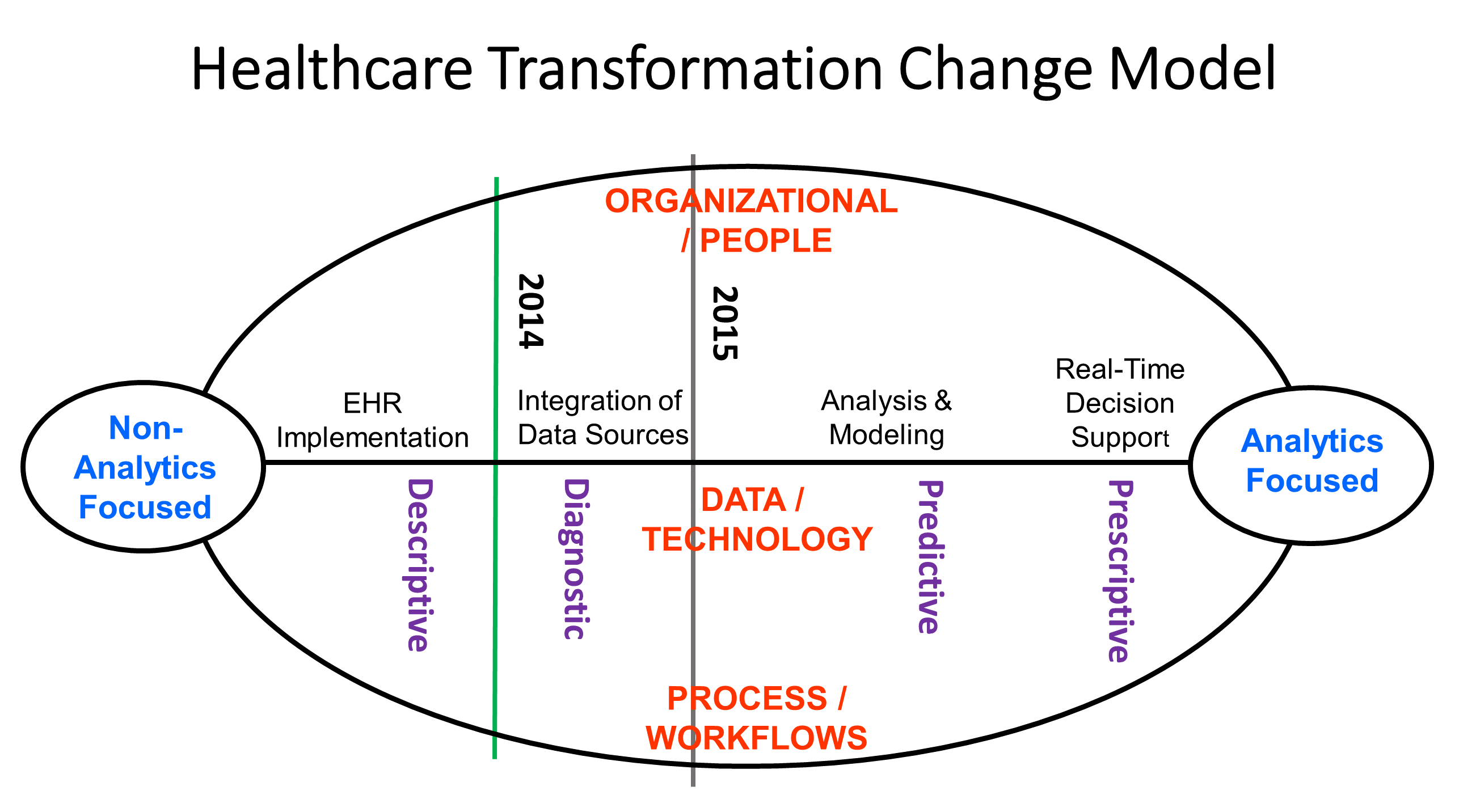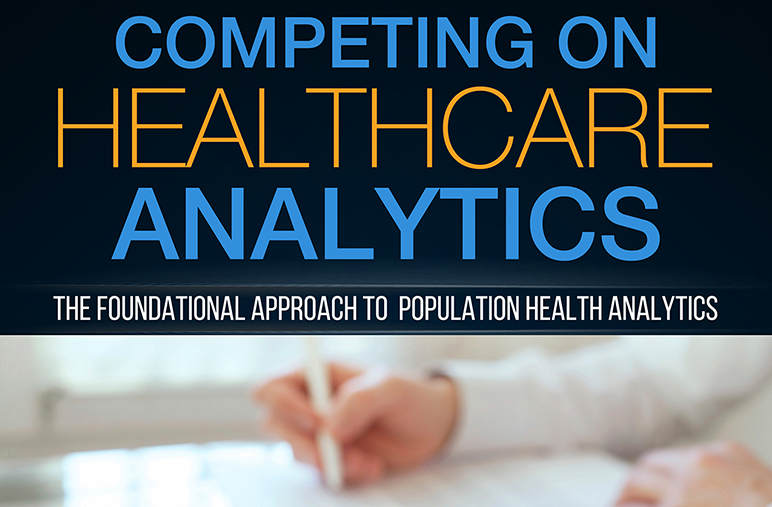The Challenges of Implementing Healthcare Analytics
An insight into predictive analytics that is the basis for real-time or near real-time decision support that is still rare among healthcare organisations.
Healthcare analytics has the potential to help identify possible health risks, promote better health and deliver more accurate diagnosis and treatment plans. There are several challenges that must be overcome before healthcare can deliver on that promise.





 Since 2014, the Healthcare Center of Excellence (HCOE) has been tracking the healthcare industry’s progress towards population health analytics using their proprietary Healthcare Transformation Change Model. This model was developed in 2013 to help healthcare organizations understand the requirements to become an analytics focused healthcare organization. The concepts were based on a customer relationship marketing (CRM) implementation model, previously co-developed by Professor Bennett. The CRM model was considered by Gartner to be one of the top three CRM implementation visions at the time and has become the basis for most successful CRM implementations today.
Since 2014, the Healthcare Center of Excellence (HCOE) has been tracking the healthcare industry’s progress towards population health analytics using their proprietary Healthcare Transformation Change Model. This model was developed in 2013 to help healthcare organizations understand the requirements to become an analytics focused healthcare organization. The concepts were based on a customer relationship marketing (CRM) implementation model, previously co-developed by Professor Bennett. The CRM model was considered by Gartner to be one of the top three CRM implementation visions at the time and has become the basis for most successful CRM implementations today.

